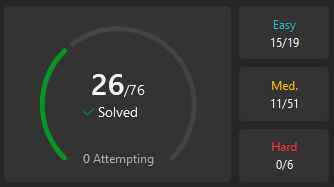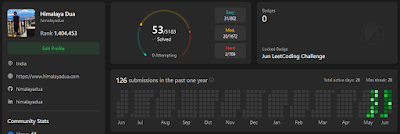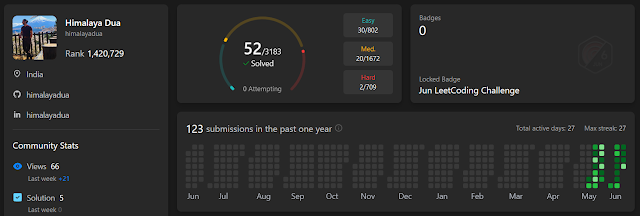Leetcode - Blind75 - P1 - Arrays

"Arrays are like the socks in your drawer; there’s always one missing when you need it the most!" We covered the arrays(lists) in python earlier in this article . Building upon that, let's take a look at the list of Blind75 questions that are based on arrays and related concepts. This blog is part of my leetcode journey blog and you can access the complete list here . Mind Mapping the Algorithmic Challenge - Blind75 Why Every Developer Should Use LeetCode Leetcode - Blind75 - Easy Arrays are a fundamental concept in programming, serving as a cornerstone for storing and manipulating collections of data. They are defined as a linear data structure that holds elements of the same data type in contiguous memory locations. The simplicity of arrays lies in their ability to access elements directly through indices, which are typically zero-based, meaning the first element is at index 0. Here's a quick overview of Lists/Arrays in python: In the context of coding in...



